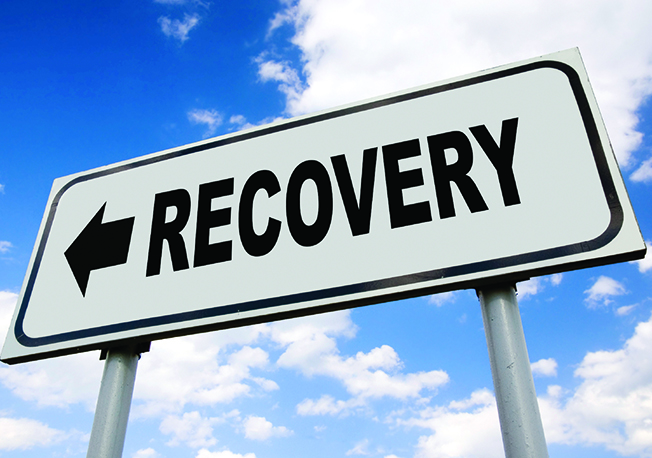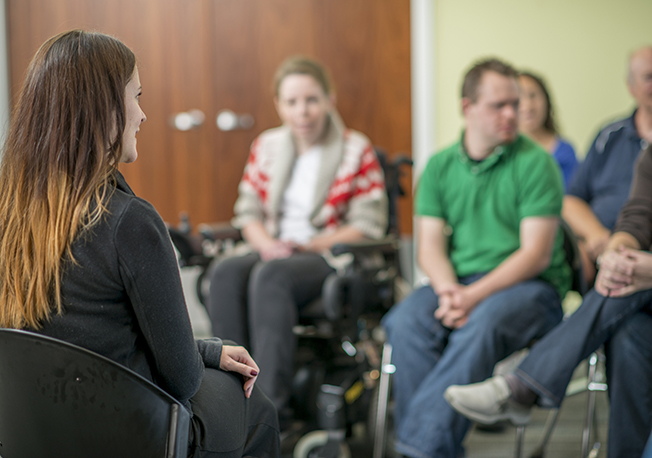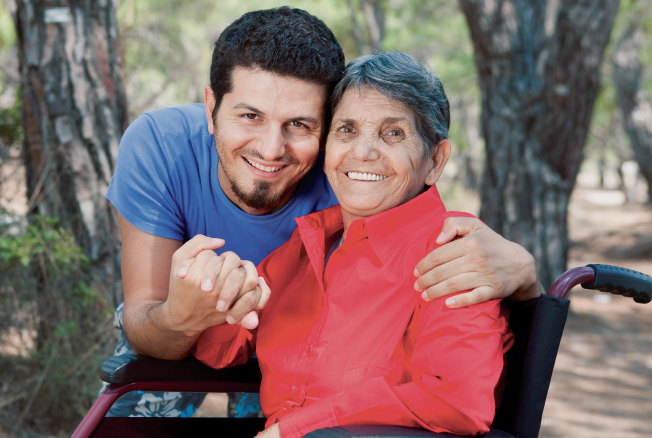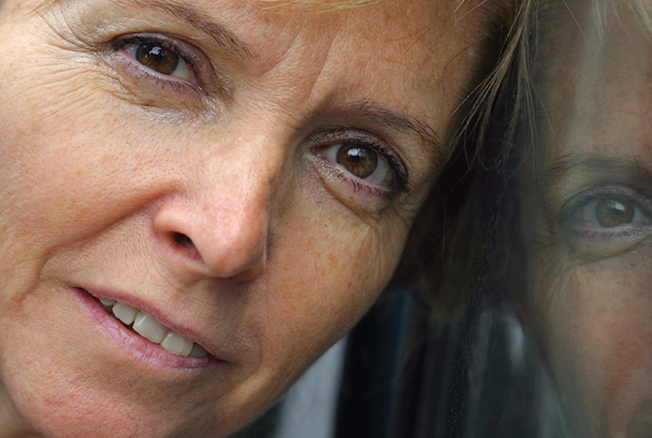Our Transitional Services offer programs designed to support people as they make strides towards greater independence and reach important milestones in their recovery efforts. Whether someone is moving into a new housing situation or seeks to continue their progress as they transition to less intensive interventions, we offer services that can support them as they work towards their goals. Our focus is on helping people discover and achieve their dreams and connecting them to the community. We offer an array of services through vocational rehabilitation, waiver and state-funded employment services, high school transition programs, community based programs, and supports for people with mental illness and substance use issues.
Service Links
Adult Drug Treatment Court
Behavioral Health Residential Services
Buncombe County Sobriety Court
Buncombe County Re-Entry Council
Family Treatment Court (SOAR & FORWARD Programs)
Hospital Discharge Services
Individual Support Services (ISS)
Jail Diversion & Re-Entry Services
NC START
SHORE Program
Tenancy Support Team (TST)

Adult Drug Treatment Court
Adult Drug Treatment Court is a voluntary criminal court program that seeks to reduce recidivism, while providing guidance, treatment, and discipline to people seeking recovery from alcohol and other drugs. The Treatment Court Team is comprised of probation and law enforcement officers, treatment providers and court officials who work together to offer people the tools they need to maintain sobriety for years after completing the program.
Buncombe County Sobriety Court
The Buncombe County Sobriety Court is a voluntary treatment court for high-risk, high-need and repeat DWI offenders. Through a collaboration between the criminal justice system and local treatment agencies, people are able to remain in the community under supervision while attending substance use treatment. The goal of the program is to reduce recidivism among DWI offenders by addressing their substance use disorders.


Buncombe County Re-Entry Council
The Re-Entry Council is a collective of community agencies, non-profits, and faith based organizations seeking to assist people returning home from prison. The Council’s mission is to increase public safety and reduce recidivism through helping clients reach educational and training goals and aiding them in finding employment.
Behavioral Health Residential Services
Our Behavioral Health Residential programs, such as the Mary Benson House in Asheville, provide housing, treatment and support to people with behavioral health needs. The Mary Benson House (MBH) is a residential substance use disorder treatment center for pregnant and parenting women, offering recovery and healing to mothers and mothers-to-be who are dedicated to overcoming substance use and providing a safe, stable and loving environment for their children.
To learn more about the Mary Benson House or apply for services, please click here


Family Treatment Court (SOAR & FORWARD Programs)
Through initiatives such as the SOAR and FORWARD Programs, Family Treatment Court in Buncombe County provides treatment and counseling, intensive case management and judicial supervision to drug and alcohol addicted parents or guardians who are in danger of losing custody of children due to findings of abuse or neglect. The goal of the SOAR Family Treatment Court is to help reunite families after parents or caregivers have successfully undergone treatment and counseling to become more stable in their behavior and recovery efforts. The FORWARD Program helps to preserve families through treatment, counseling and care coordination for parents struggling to recover from substance use. The top priority of these programs is to promote safety, well-being and permanence for children in their home environments by helping their caregivers overcome substance use and maintain a healthy recovery.

Hospital Discharge Services
These are temporary services for people who are currently receiving inpatient psychiatric care and need assistance in transitioning to outpatient mental health, substance use or developmental disability services. Hospital discharge services include person-centered case management, service coordination/referrals to outpatient care, peer support, follow-up/aftercare planning and help with reducing the likelihood of future hospitalizations or other crisis situations.
Individual Support Services (ISS)
Individual Support Services are “hands-on” individualized assistance with everyday activities that are required by a person with severe and persistent mental illness in order to live independently in his/her community.


NC START Respite & Team
NC START stands for North Carolina Systemic Therapeutic Assessment, Respite, and Treatment. This program offers intervention and community crisis supports for people with developmental disabilities and challenging behavioral health needs. Each region in the state (East, Central, and West) has two clinical teams that provide 24/7 crisis response and clinical consultation as well as prevention training and crisis planning. NC START also provides respite services for eligible individuals. RHA provides NC START services in the Eastern and Western regions of the state.
SHORE Program
RHA SHORE provides effective therapeutic services and support to young people aged 15 – 30 who are experiencing certain life challenges due to unusual thoughts or behaviors or seeing and hearing things that others do not (symptoms associated with schizophrenia spectrum and similar psychotic disorders).


Tenancy Support Team (TST)/Transition Management Services (TMS)
Tenancy Support Team/Transition Management Services is a rehabilitation service intended to help people live more independently within their own communities by maintaining tenancy. RHA offers discreet housing support to people with mental health needs and/or substance use challenges who are experiencing difficulty in maintaining tenancy due to these conditions.
Jail Diversion & Re-Entry Services
The goal of the RHA Jail Diversion program is to direct people with mental health needs into community-based therapeutic services rather than incarceration. Re-Entry programs link people with appropriate mental health providers and community resources following their release from jail, helping them transition more successfully to daily life in their communities. Jail Diversion and Re-Entry services enable mental health professionals to work with county jails, law enforcement and the courts to better serve the needs of adults with mental illness while improving public safety.


